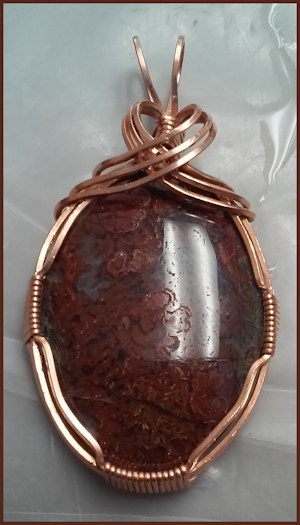
schedule your class with Yvonne Foster at our club
meeting
An instruction class is given by the club. The class is usually held
at the workshop. The training typically will be on an area of the
lapidary arts. Past classes have addressed making cabochons, wire wrapping,
beading, metalsmithing, mineral slab sawing, jewelry enameling and the
like.
If you have a particular interest, let us know and perhaps a training
class will be made available.
Talk to Yvonne at our club meetings
|
|